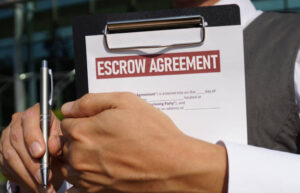The UK Panel on Takeovers and Mergers: the quintessential governing body for Seychelles to Mirror
The transition from an independent regulatory body to a legislative arm of the state
Prior to the EU Directive the UK Panel on Takeovers and Mergers was self-created by stakeholders who put together rules that they would voluntarily abide by, this set up was completely separate from the UK government. The Panel was best placed to assess and regulate the market as neither the Courts nor Parliament have the technical knowledge and understanding to perform this role as well as the Panel does. The Panel was eventually placed on statutory footing, through the Directive where its rule making powers were no longer internal but statutory emanating from s943 of the UK Companies Act 2006 (the “Act”). The Panel gained the power to essentially enact prescribed legislation and is an extension of the legislative arm of the state.
The role of regulation of the Panel has been left to the press, the public in general, and market participants themselves as the Panel never required interference from the courts and managed to maintain the speed at which it reacts to market changes. Lawyers and investment bankers play a major role in scrutinising the Panel and tend to be very vocal when a wrong has been committed and jointly form a very powerful alliance which can bring about the changes that the market may need. As such there is scrutiny of the Panel’s legislative role even though it’s not carried out in the traditional manner through the courts. The status quo is not a bad one provided the Panel does not act unfairly or in excess of its powers.
Prior to the Directive the Panel had mild disciplinary powers for breach of the UK Takeover Code which consisted of warnings, public and private censures and cold-shouldering market participants which admirably were very rarely needed or used . With the implementation of the Directive the Panel gained much wider powers to impose sanctions s952, financial compensation s954, and court enforcement of the Panels decisions through s955 of the Act.
This gave rise to the expectation that the Panel would use those harsher powers it was given. If that was the case then the Court would have more latitude to scrutinise the Panel’s actions should it exceed its power or act in any harsh or manifestly unjust manner. This would have also led to the courts interfering with the Panels rulings resulting in less certainty in the finality of the Panels decisions and slowing down the takeover process. However, very smartly the Panel has not given use to the greater powers afforded to it and continues to operate mainly through the cooperation of market participants.
The state and judicial systems support is given as a result of the reputation the Panel has earned for itself and the respect it has secured from the Judiciary described by Lord Donaldson M.R. as a “truly remarkable body”.
Absolute Deference as opposed to scrutiny from the Courts
There are also extremely few applications for judicial review as a result of the market participants being so used to resolving matters without court interference.
As a result of being placed on statutory footing and essentially becoming part of the Executive the Panel has been subject to more scrutiny from the political parties on its activities. One example is the call by the Conservative Party to increase governmental scrutiny on takeover bids. This came after the Kraft takeover of Cadbury which lead to the closing down of its factory in the UK and the loss of 400 jobs. The Panel was very quick to react to this and implement changes of the Code ensuring offerors make a clear statement of its intention and undertakings post offer and widening their powers of supervision. This has now been implemented in the Softbank – ARM takeover bid.
The Panel has been able to maintain the speed with which it acts and the certainty of its decisions largely through the complete lack of interference by the judicial system. The courts do have jurisdiction to review the decision of the Panel but choose not to exercise it unless there is a real risk of injustice which, to date, fortunately the Panel has not done. As such the status quo is the appropriate balance to have as it allows the UK to have the most sophisticated and developed M&A market. Further, there appears to be no other quasi-judicial body that can supervise and hear cases with the speed with which the Panel operates. Nor is there any other body that commands the respect of the judiciary of a country the way the Panel does.
In the case of Seychelles
Seychelles regulates takeovers & mergers through the Fair-Trading Commission (FTC). FTC is guided by the Fair Competition Act 2009 and covers abuse of dominance, anti-competitive agreements, and mergers. Importantly, with all these circumstances, what is crucial to the private businesses involved is the speed at which FTC makes decisions. Private businesses desperately require clarity on these matters to allow them to move forward and make the right strategic decisions. With the scope and experience of the Seychellois Businessman growing, as proven by the acquisition of Cable & Wireless by Seychellois, why not have a panel of local experts to swiftly determine matters brought before them. The UK Panel is extremely agile in this regard and is exactly why they are so highly praised for their work.
SOURCES
- J. Armour and D. Skeel, ‘Who Writes the Rules for Hostile Takeovers, and Why? The Peculiar Divergence of US and UK Takeover Regulation’ (2007) 95 Georgetown Law Journal 1727
- Vanessa Edwards, ‘The Directive on Takeover Bids – Not Worth the Paper It’s Written On’ [2004] European Company and Financial Law Review (ECFR) 416.At p420
- Council for the Securities Industry (Great Britain) (ed), The City Code on Takeovers and Mergers (12th edn, Panel on Take-overs and Mergers 2016).
- Harvard Law School Forum on Corporate Governance and Financial Regulation, ‘Learnings from Some Recent Contested Cases Before the UK Takeover Panel’ <https://corpgov.law.harvard.edu/2017/07/22/learnings-from-some-recent-contested-cases-before-the-uk-takeover-panel/> accessed 29 July 2019.
- D Kershaw, ‘WEB CHAPTER A: THE MARKET FOR CORPORATE CONTROL’ 149.
- J. Mukwiri, ‘The myth of tactical litigation in UK Takeovers’ (2008) 8(2) Journal of Corporate Law Studies 373, at 387
- Council for the Securities Industry (Great Britain) (n 3). Rules 19.5 and 19.6.










